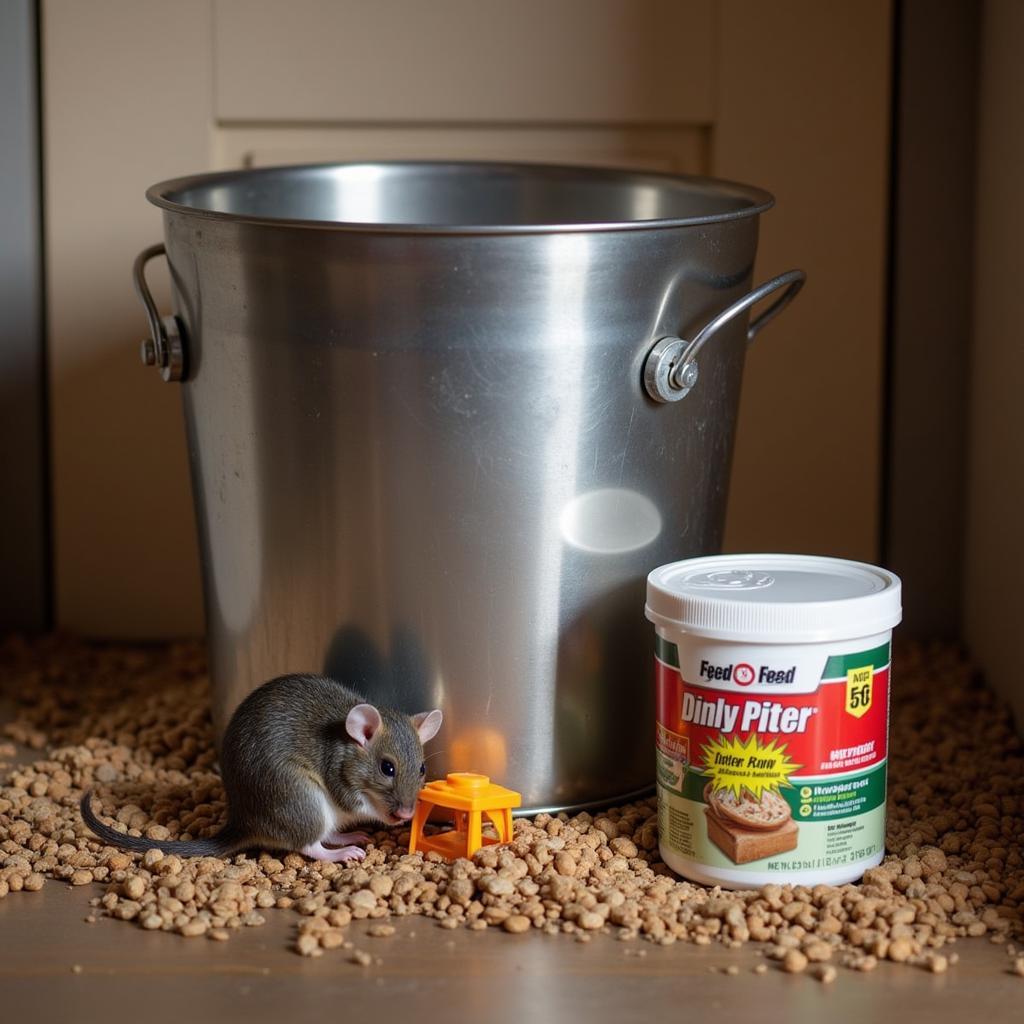A well-designed Feed Room For Horses is essential for maintaining their health, managing feed efficiently, and ensuring a safe environment. It’s the heart of your horse care operation, impacting everything from feed quality to preventing colic. Let’s delve into the key aspects of setting up and maintaining an ideal feed room for your equine companions.
Essential Elements of a Horse Feed Room
A functional feed room doesn’t require a massive space, but it does need careful planning. Consider these critical elements:
- Location: Choose a dry, well-ventilated area, preferably close to your horse stalls. This minimizes carrying heavy feed bags and makes feeding more efficient. Proximity to water is also important for cleaning and preparing mashes.
- Security: Protect your feed investment and your horses’ health by securing the feed room against pests and unauthorized access. Sturdy doors, locks, and rodent-proofing are crucial.
- Storage: Invest in airtight containers to protect feed from moisture, insects, and rodents. Clearly label each container with the feed type and date of purchase. Shelving units keep everything organized and off the floor.
 Horse Feed Room Pest Control
Horse Feed Room Pest Control - Cleanliness: Regularly clean the feed room to prevent mold, mildew, and pest infestations. Sweep or vacuum the floor, wipe down surfaces, and empty trash cans frequently.
- Organization: A well-organized feed room saves time and reduces stress. Designate specific areas for different types of feed, supplements, and medications. Implement a first-in, first-out system to ensure feed freshness.
What Should Be in a Horse Feed Room?
Beyond the basic structure, equipping your feed room with the right tools and supplies streamlines your feeding routine:
- Scoops and Measures: Accurate feeding is crucial for maintaining your horse’s weight and health. Keep a variety of scoops and measuring cups on hand for different feed types and supplements.
- Feed Bins and Buckets: Choose sturdy, easy-to-clean bins and buckets for storing and distributing feed. Opt for horse feed bucket options that are durable and appropriate for your horses’ needs.
- Hay Storage: If you store hay in or near your feed room, ensure it is kept dry and free from dust and mold.
- First-Aid Kit: A well-stocked first-aid kit should be readily available in case of minor emergencies.
Common Feed Room Mistakes to Avoid
- Overstocking: Buying feed in bulk can be economical, but avoid overstocking, especially during warmer months. Feed can spoil quickly, attracting pests and potentially harming your horses.
- Ignoring Pest Control: Pests can contaminate feed, spread disease, and cause significant damage. Implement a comprehensive pest control plan, including traps, bait stations, and regular inspections.
- Lack of Organization: A disorganized feed room leads to wasted time, inaccurate feeding, and potential safety hazards.
Keeping Your Horse Healthy Through Proper Feed Room Management
A well-maintained feed room is an investment in your horse’s health and well-being. It’s directly related to concerns such as flea control for horses because a clean environment reduces pest infestations that can lead to discomfort and health issues. By following these guidelines, you can create a safe, efficient, and effective space for managing your horses’ nutritional needs. Remember that providing a balanced diet and adequate care goes hand in hand with considering the boarding horses cost.
“A clean and organized feed room is a sign of a responsible horse owner,” says Dr. Emily Carter, equine veterinarian. “It demonstrates a commitment to providing the best possible care for your animals.”
How Do I Organize My Horse Feed Room?
Organizing your feed room can be a simple process. Start by decluttering and discarding expired feed or medications. Then, invest in appropriate storage containers and label everything clearly.
What is the Best Flooring for a Horse Feed Room?
Concrete is an excellent choice for feed room flooring. It is durable, easy to clean, and resistant to pests.
Conclusion
Investing in a well-designed feed room for horses is a cornerstone of responsible horse ownership. From proper storage solutions to efficient pest control, a dedicated feed room ensures the health and well-being of your equine companions. Implementing these guidelines will not only streamline your feeding routine but also contribute significantly to the overall health and happiness of your horses. If you have any questions about building or improving your feed room, be sure to reach out. You might also want to consider aspects like confidence eq for horses to foster a positive and trusting relationship with your animals. Remember a healthy horse starts with a healthy feed room!
FAQ
- How often should I clean my horse feed room?
- What are the best ways to prevent rodents in my feed room?
- What type of lighting is best for a horse feed room?
- How can I store supplements to maintain their potency?
- What should I do with expired horse feed?
- How can I make my feed room more efficient during feeding time?
- What are the signs of a pest infestation in my feed room?
Do you have other questions? Check out our other informative articles like “gypsy horses for sale in texas” on our website.
Need assistance? Contact us at Phone Number: 0772127271, Email: [email protected] Or visit us at: QGM2+WX2, Vị Trung, Vị Thuỷ, Hậu Giang, Việt Nam. We have a 24/7 customer service team.